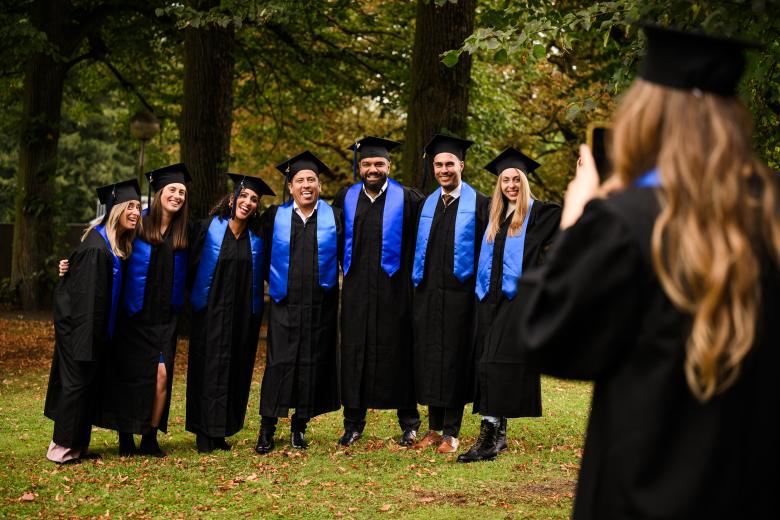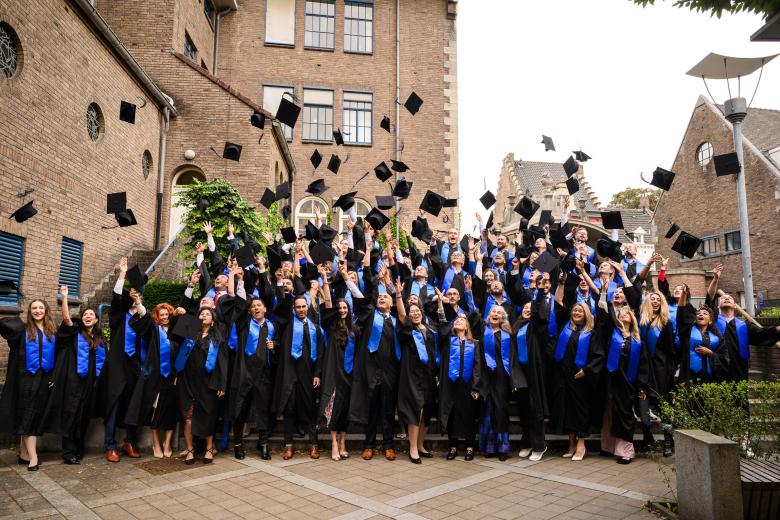Erasmus+ Grant for developing executive study module on Service Design Thinking
The self-scanner at Albert Heijn supermarkets and the digital way of ordering at McDonalds restaurants: both are recognisable examples of Service Design results. Service Design means developing new services or improving existing services using creative design tools. The Department of Marketing & Supply Chain Management (SBE) and the Service Science Factory (UMIO) will co-develop an executive study programme in the field of Service Design. Together with Tallinn University, Stockholm School of Economics and consultancy firm Brand Manual they received an Erasmus+ Grant to realise this programme.
Prof. Dr. Dominik Mahr and Damien Nunes are on behalf of SBE and UMIO, involved in this initiative. “Service Design is new to many organisations”, says Nunes, who is Strategic Service Designer and Innovation trainer at UMIO’s Service Science Factory (SSF). “Organisations often do not know where to start. In addition, design disciplines are generally not represented in the highest layers of an organisation, while customer experiences do affect the entire organisation. Therefore, we must create awareness at a higher level. That is why we are going to develop this study module for executives. It will be a programme at a strategic level, where you must be able to manage and inspire.”
Top notch in service innovation
Tallinn University is the initiator of the project and the main applicant for the grant. They decided to contact Prof. Dr. Dominik Mahr, because of his expertise in Service Innovation and Design at the Department of Marketing & Supply Chain Management of Maastricht University’s School of Business and Economics (SBE). This department is a worldwide authority in the field of Services. Mahr: “Our department is top notch when it comes to service innovation, but that is not enough. We need to find out how it ties in with the actual problems that organisations have when it comes to Service Design. UMIO’s Service Science Factory helps us in making the course operational.”
Full interview
Click here to read the full interview with Dominik Mahr and Damien Nunes.
Also read
-
SBE researchers involved in NWO research on the role of the pension sector in the sustainability transition
SBE professors Lisa Brüggen and Rob Bauer are part of a national, NWO-funded initiative exploring how Dutch pension funds can accelerate the transition to a sustainable society. The €750,000 project aims to align pension investments with participants’ sustainability preferences and practical legal...

-
Maastricht University recognised among top institutions in CEO Magazine’s 2025 Green MBA Rankings
We are proud to share that Maastricht University School of Business and Economics has been recognised as a top-ranked institution in the CEO Magazine 2025 Green MBA Rankings.

-
Global recognition for SBE’s Executive Education by Financial Times
We are proud to announce that Maastricht University School of Business and Economics (SBE) has secured an impressive global ranking of 84th in the Financial Times Open-Enrolment Executive Education Ranking 2025.
